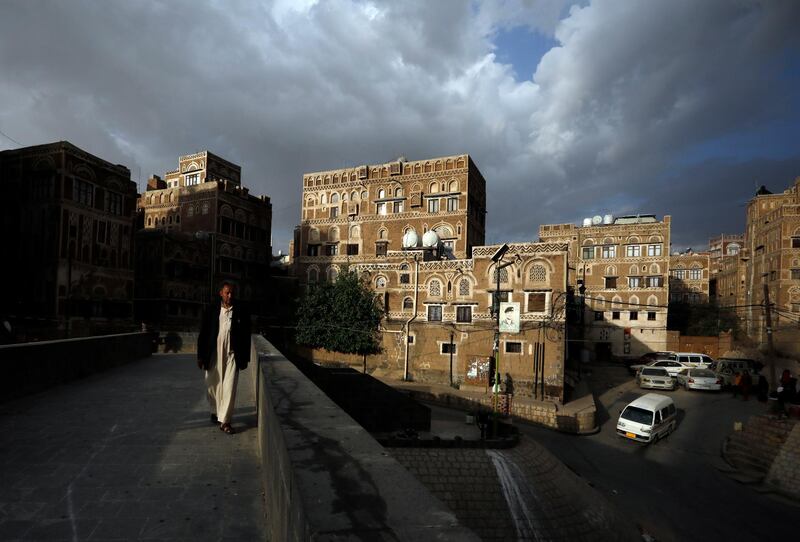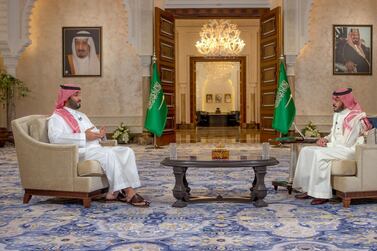Yemen’s internationally recognised government said it backs Saudi Arabia's rejection of armed groups outside of the state's authority such as the Iran-backed Houthi rebels on Thursday.
It came days after Saudi Arabia’s Crown Prince Mohammed bin Salman gave a landmark interview marking five years since the kingdom embarked on its Vision 2030 initiative to transform the country from an oil-dependent economy to a more modern, knowledge-driven society.
In the interview, he said the conflict in Yemen is a sticking point towards having any peace with Iran.
“We appreciate Saudi Arabia's affirmation of its position on the Houthi coup against the legitimate government, and its rejection of any armed groups outside the state’s authority,” said the director of Yemen’s Presidential office, Abdullah Al Alimi.
“In addition to supporting the kingdom’s efforts towards peace for the Yemeni people, we are thankful and grateful for it,” Mr Alimi said.
Tensions between Iran and the region have increased in recent years especially over the war in Yemen, where the Iran-backed Houthis have claimed various drone attacks on Saudi Arabia.
"There is no country in the world that would accept the presence of armed militias on its borders, such as the Houthis,” Prince Mohammed said.
"There is no doubt the Houthis have strong ties with the Iranian regime, but they are Yemenis with Arab instincts," he added, urging the rebels to accept a ceasefire deal.
Prince Mohammed said the kingdom has a problem with Iran’s “negative behaviour” but that his country wanted a good relationship with Iran.
"We do not want for Iran to be in a difficult situation, on the contrary we want Iran to prosper and grow. We have interests in Iran and they have interests in the Kingdom to propel the region and the world to growth and prosperity," he said.
The UN Envoy to Yemen, Martin Griffiths, praised Prince Mohammed's comments on Thursday.
"I welcome the positive statements by HRH Crown Prince Mohammed Bin Salman and his call for a ceasefire and negotiations," he said.
"Ending the war in Yemen will significantly contribute to the stability and security of the region," he said in a statement.
The US Special Envoy for Yemen, Tim Lenderking, arrived in Saudi Arabia on Thursday to hold discussions with senior officials on “ensuring the regular and unimpeded delivery of commodities and humanitarian assistance in Yemen,” according to a statement by the State Department.
#USEnvoyYemen Lenderking is in Saudi Arabia w/@OSE_Yemen for discussions on ensuring the regular & unimpeded delivery of commodities & humanitarian assistance in #Yemen, promoting a lasting ceasefire, & transitioning the parties to a political process. https://t.co/2TvylTyIMA
— U.S. State Dept - Near Eastern Affairs (@StateDept_NEA) April 29, 2021
The talks will also focus on “promoting a lasting ceasefire and transitioning the parties to a political process,” it said.
Mr Lenderking “will build on the international consensus to halt the Houthi offensive on Marib, which only worsens the humanitarian crisis threatening the Yemeni people,” said the statement.








